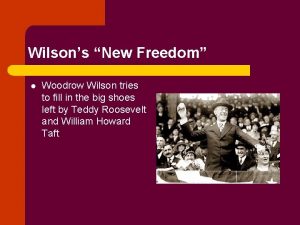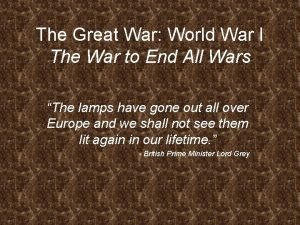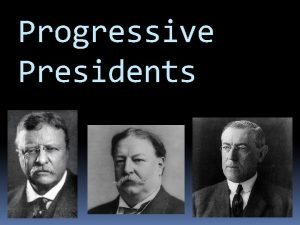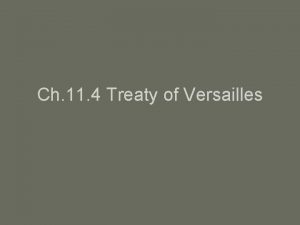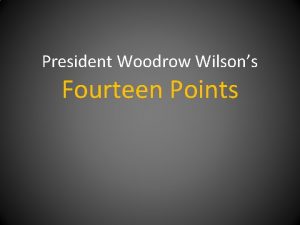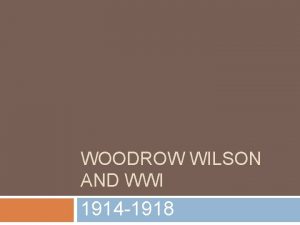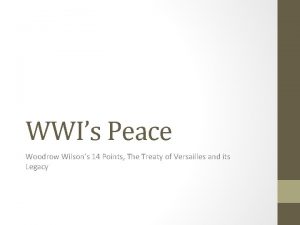Woodrow Wilsons Peace Plan Announced in January 1918







- Slides: 7

Woodrow Wilson’s Peace Plan • Announced in January 1918 • Wilson wanted to build a better world society, not to punish the losers • Difficult to get Allied leaders to agree to plan Wilson’s “Fourteen Points” speech to Congress

The “Fourteen Points” Wilson and French President Raymond Poincare in Paris A sign in Paris reading “Long Live Wilson” • Wilson’s plan for a “peace without victory” • European leaders only implemented some of the Fourteen Points in the Versailles Treaty

Preparing to Negotiate the Treaty • Wilson sought to use treaty to persuade Germans to overthrow Kaiser • Edward House negotiates with Allies to make Fourteen Points the basis for the treaty • Wilson decides to attend treaty negotiations in person Edward House

The “Big Four” at Versailles • Leaders from the “Big Four” – • Italy, U. S. , France, Britain • Treaty negotiations held at Palace of Versailles • Varied goals and interests made settlement difficult The “Big Four” Allied leaders (seated): from left, Vittorio Orlando of Italy, Georges Clemenceau of France, David Lloyd-George of England, and President Wilson

The Finished Treaty • Harsh terms for Germany • War Guilt Clause and reparations • Germans lose significant territory • Mandate system for German colonies • New nations created • League of Nations Yugoslav delegates at Paris Peace Conference Hall of Mirrors during the peace signing

The League of Nations • Proposed in Fourteen Points • Part of Treaty of Versailles • League included a Secretariat, Assembly, Council, and other agencies • Existed from 1920– 1946 • Replaced by United Nations • U. S. never signs treaty or joins League of Nations The opening session of the League of Nations in Geneva, Switzerland in November 1920

Legacy of World War I • United States asserted itself as a financial, industrial, and international power • United States turned more toward isolationism after war • Weaknesses in Versailles Treaty and failure to join League of Nations helped create the conditions in Europe that eventually led to World War II
